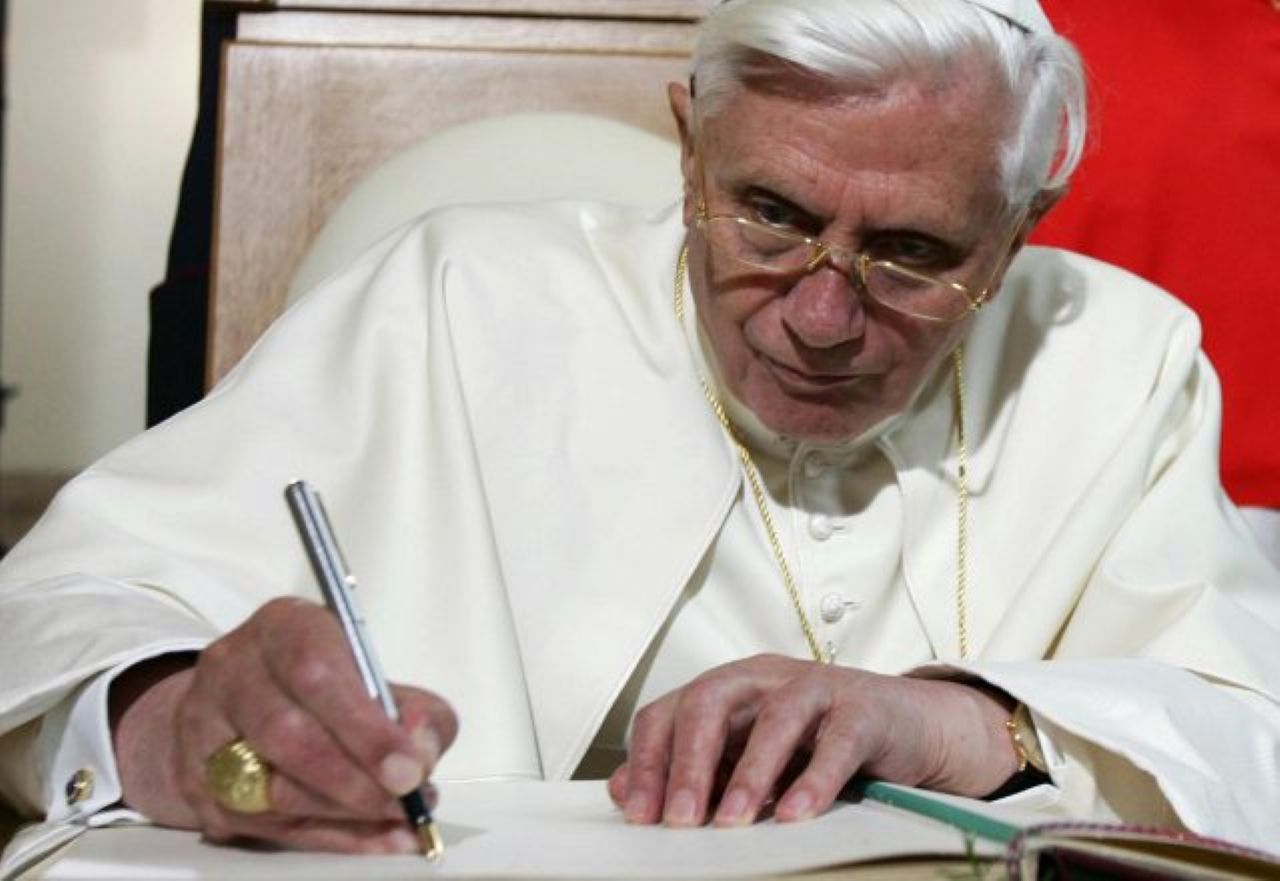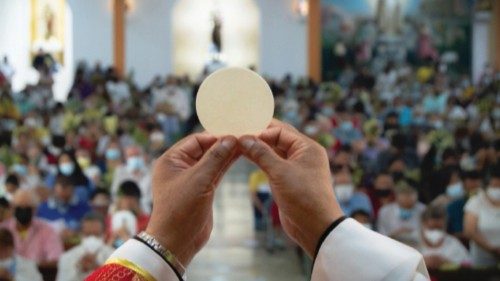“The love of God has been poured into our hearts through the Holy Spirit who has been given to us.” (Rom 5:5)
In an age marked by the eclipse of interiority, when the human soul is increasingly distracted by the din of external things, there arises with renewed urgency the call to rediscover the profound mystery of the Holy Spirit—not as an abstract force, but as the most intimate Guest of the soul. The Holy Spirit, the Third Person of the Blessed Trinity, is not merely an auxiliary presence or a theological afterthought; He is the personal Love between the Father and the Son, and as such, He is the unbreakable bond of divine communion that seeks to possess the innermost sanctuary of the human heart. Indeed, He is the divine seal of intimacy between God and man; therefore, to love the Holy Spirit is to love the Father and the Son.
Intimate Love of the Spirit
To contemplate the Holy Spirit is to be drawn into the very heart of Trinitarian life. As Saint Augustine taught, the Spirit is the mutual Love of the Father and the Son—so perfectly personal, so infinite in charity, that He is not merely a shared affection but a distinct divine Person, co-equal and consubstantial with the Father and the Son. The Spirit is not just the love of God; but rather He is love as God Himself (cf. 1 Jn 4:8). When this Spirit is poured into our hearts, it is not some impersonal energy that we receive, but the very Love that proceeds eternally from the Father to the Son and from the Son to the Father. He is the Love that creates, sanctifies, and glorifies.
Thus, to foster a relationship with the Holy Spirit is to enter into a communion with Love itself. Not a love that remains external, transactional, or fleeting—but a Love that desires to penetrate the very marrow of our being, to transform our soul into a temple, an altar, and indeed a living flame.
The Intimacy of the Spirit with the Soul
There is an ancient phrase in the Church that speaks of the Spirit as dulcis hospes animae—the sweet Guest of the soul. It expresses the depth of this interior nearness. Saint Paul speaks of the Spirit dwelling within us (cf. 1 Cor 6:19); and more than dwelling, He groans within us (Rom 8:26), interceding, sighing with inexpressible intimacy in the hidden places of our weakness.
This indwelling is not metaphorical, but it is real, sacramental, and transformative. In Baptism and Confirmation, the Spirit claims the soul for God. In the anointing of chrism, the Spirit imprints upon the soul a seal (sphragis) of divine belonging, such that the Christian bears within himself the identity of Christ the Beloved. And in the daily life of grace, the Spirit continues to shape the soul from within, conforming it ever more deeply to Christ in filial obedience to the Father.
As Pope Benedict XVI once remarked, “Prayer guided by the Holy Spirit, who makes us say: “Abba! Father!” with Christ and in Christ, inserts us into the great mosaic of the family of God in which each one has a place and an important role, in profound unity with the whole.” Hence, without the Spirit, prayer is impossible. Without the Spirit, holiness is a phantom. Without the Spirit, the soul is deaf to the Word of God and blind to the Body and Blood of Christ in the Eucharist.
The Measure of Love: The Spirit Without Measure
“The measure of love is to love without measure,” wrote Saint Bernard of Clairvaux. This adage reaches its full truth in the Person of the Holy Spirit. He is the measureless Gift—the Love given without reserve. Christ Himself attested to this when He declared that the Father “gives the Spirit without measure” (Jn 3:34). This is the paradox of divine generosity: the more the soul opens itself to the Spirit, the more it receives; the more it receives, the more it desires; and the more it desires, the more it is inflamed.
This outpouring of love is not a static possession but a dynamic reality. The Spirit moves the soul in love toward the Father and the Son, illuminating the path of virtue, stirring acts of faith, inspiring apostolic zeal, and above all, enkindling the fire of divine charity. He is, in the words of Saint John of the Cross, the “living flame of love” that burns gently and secretly in the recesses of the soul.
To measure the love of the Holy Spirit is thus an impossible task—for He is the infinite Love of the Infinite God. But we may say this: the Spirit loves us to the extent that He desires to make of us another Christ. His sanctifying action is not content with mediocrity. He desires to raise the soul to the heights of mystical union, not merely through extraordinary experiences but through the transformation of the will into perfect conformity with divine love.
The Need for a Renewed Pentecost
In our time, when the spiritual life is so often reduced to psychological techniques or moral platitudes, we must return to the source: the Spirit who alone gives life (cf. 2 Cor 3:6). We must become once more a Church docile to the Spirit’s inspirations, guided by His promptings, nourished by His fruits, and animated by His gifts. As Pope Benedict affirmed during his homily for Pentecost 2006: “Only the Holy Spirit, who is Love, can ignite in us the flame of God, and only the flame of God, the flame of Love, can transform the heart.”
A renewed devotion to the Holy Spirit is not an optional devotion—it is essential to the Christian life. We must invoke Him daily, call upon Him with filial trust, and open the doors of our soul to His purifying presence. For the Spirit is not only the origin of holiness; He is its very form. And where the Spirit is, there is freedom, truth, and eternal communion with the Triune God.
“Come, O Holy Spirit”
Let us then, in the silence of our hearts, whisper that ancient prayer: Veni, Sancte Spiritus. Come, O Fire of Love. Come, sweet Guest of the soul. Come, Light from Light. Enter into the hidden places of our being and make us wholly Yours. May we learn to live under Your breath, to walk by Your light, and to burn with Your flame—until the day when the veil is lifted and we behold, in the communion of saints, the glorious Face of the God who is Love.












